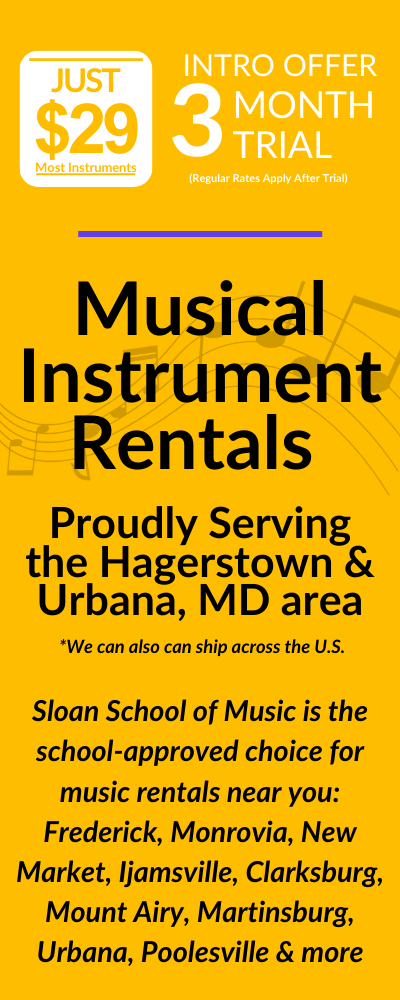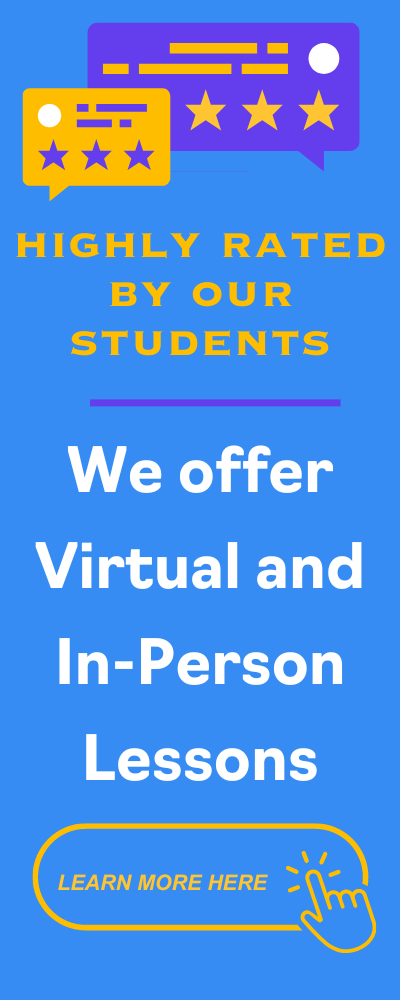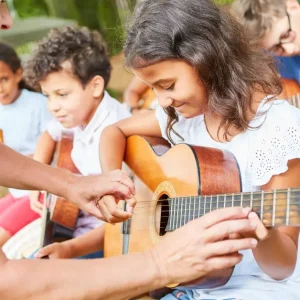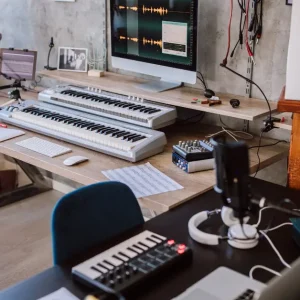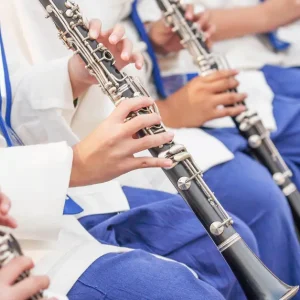Key Takeaways:
- Some people may need help determining the best length of their piano lessons.
- The proper duration of a music lesson has more to do with the student’s traits than anything else.
- Most lessons last from 30 to 90 minutes.
- Students can learn faster with shorter lessons than with longer ones.
- A few factors can help determine the best length.
There are many reasons to contemplate the length and duration of your piano or music lessons. Newbies want to know how much time is needed to start properly. People with some experience might wonder when it’s most helpful to change lesson lengths or frequency.
The relationship between time and learning is different for everyone. People learn at varied paces. One student may progress quickly by taking a 30-minute class once a week, while another student struggles to keep up with an hour-long class each week. Add a third student in the equation who takes two 30-minute classes two days per week and performs better than the other two students.
Longer lessons don’t necessarily lead to more knowledge, regardless of the subject matter. Some students need 20 minutes to fully immerse themselves in their lessons, while others jump right in at warp speed. The amount of time to dedicate to lessons is primarily determined by the student’s traits, but there are a few eternal factors to consider that make the decision easier.
This guide will walk you through the typical lengths of piano lessons, the benefits of short and long music lessons, and some influential factors to consider before choosing a lesson length.
Typical Lesson Lengths
It’s impossible to name one specific duration as the perfect time limit to answer the question, “How long are piano lessons?” Music class options usually include 30, 45, 60, and 90 minutes. The more intensive and individualized the lesson is, the shorter it can be and still be effective.
Flexible piano lessons are also something to consider. A flexible lesson has a basic time limit, but it’s doable if the student shows a need to continue longer than usual.
Short vs. Long
Thirty minutes may not seem like enough time to get into a music lesson. Forty-five minutes or an hour may be too long. There are benefits to both time frames.
30 Minutes or Less
Shorter lessons don’t require as much commitment or endurance as long lessons, making them ideal for newer students. It’s also easier to focus in such short increments. Cost is another popular benefit – shorter classes will typically cost less.
45+ Minutes
The most obvious benefit of longer lessons is that the teacher can cover more material in one sitting. Students can learn more of one piece but also more complex concepts. Short lessons are cheaper, but long lessons may be a better investment.
There are benefits to every duration of a piano lesson. The one you choose depends on several deciding factors.
Determining Factors
Any lesson length can generally be beneficial, but sometimes a situation may necessitate a specific time frame. Some factors that may determine the duration of piano lessons include:
Goals
Knowing what you want from the lessons is the first thing to consider. Longer lessons are necessary if you intend to make a career out of your music. People who simply want to understand and learn basic music theory will enjoy shorter classes.
Practice Time
The amount of time available for practice outside lesson time makes a big difference. If you have lots of time between lessons, shorter time slots can work because you’ve had plenty of time to work on what you learned.
Focal Abilities
The ability to focus should always be considered when deciding on lesson duration. For those who have trouble focusing for long, such as young children, lessons that are 30 minutes or under are perfect. Older students with longer attention spans and better concentration abilities benefit from longer lessons.
Experience and Skill
Experience-dependent neuroplasticity is a brain function that makes the things you concentrate on become more powerful. Longer lessons work great for intermediate and advanced learners. There are exceptions, however. Some new students can happily focus longer, while some advanced students may do better with a short lesson.
Budget
Sometimes it just isn’t feasible to take long lessons regularly. Longer classes are more expensive, and amping up the frequency of shorter lessons comes out to be about the same amount of time practicing. In many cases, classes under half an hour are the only type that fits into the budget.
Enthusiasm
The hard truth is that some kids just aren’t into their piano lessons. Their parents force them, or they’re trying to live up to someone else’s ideals. It doesn’t matter if the class is 10 minutes or 10 hours in these instances. They aren’t going to gain any great love for music in such cases, no matter how long they practice.
Only the student and teacher genuinely know the proper length of a music lesson. There is no textbook answer, but considering these factors will help shape a decision.
Investing in music lessons is a fantastic way to further your interest and improve your skills and talent. The length of the lesson isn’t the most influential factor. Taking piano lessons of any duration is what’s most important.
Music lessons boost brain power, increase memory, and provide a creative outlet – and those are only a portion of the benefits lessons offer for people of all ages. Start with 30-minute lessons and move forward when it feels right. The beautiful world of piano lessons is about to brighten your life.
Learn More About Piano Lessons and Other Music Classes Today
Music classes are one of the best things you can do for someone who enjoys playing an instrument. Sloan is a music school that provides lessons (private, group, virtual) in various musical disciplines. We sell top-of-the-line musical instruments and accessories, plus instrument rental programs. Contact Sloan School of Music for more information about musical instruments, accessories, lessons, and more.


